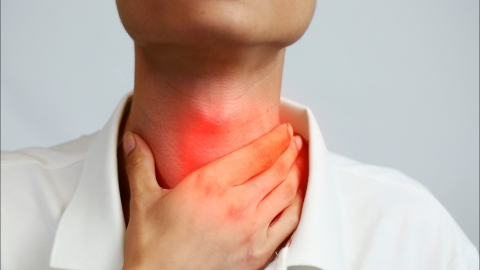What causes the feeling of shortness of breath or difficulty breathing?
Generally, feeling short of breath and struggling to catch one's breath may be caused by strenuous exercise, emotional excitement, bronchial asthma, chronic obstructive pulmonary disease (COPD), heart failure, or other reasons. It is recommended to seek timely medical attention and follow professional medical guidance for treatment. A detailed explanation is as follows:

1. Strenuous Exercise
During intense physical activity, the body's oxygen demand significantly increases, requiring the heart and lungs to work harder to meet this demand. If cardiopulmonary function cannot adapt quickly enough, shortness of breath and difficulty breathing may occur. Regular exercise should be gradual, with adequate warm-up before exercise, and the intensity and duration should be reasonably planned according to individual physical condition.
2. Emotional Excitement
Extreme emotional excitement increases nervous system excitability, affecting the respiratory center and causing disordered breathing rhythm, leading to shortness of breath and difficulty breathing. It is important to learn emotional management in daily life, alleviate negative emotions through deep breathing, meditation, distraction, and maintain emotional stability.
3. Bronchial Asthma
Bronchial asthma is often triggered by a combination of genetic and environmental factors, such as exposure to allergens like pollen and dust mites. Inflammatory reactions in the airways due to allergies lead to airway narrowing and spasms, obstructing airflow and causing difficulty breathing and shortness of breath. Symptoms may also include coughing, wheezing, and chest tightness. Patients can use medications such as salbutamol aerosol, budesonide-formoterol powder inhaler, and montelukast sodium tablets under a doctor's guidance.
4. Chronic Obstructive Pulmonary Disease (COPD)
COPD is often caused by long-term smoking, air pollution, or occupational exposure to dust. Damage to the airways and alveoli in the lungs leads to impaired ventilation function and disrupted gas exchange, resulting in shortness of breath and difficulty breathing. Symptoms may also include coughing, sputum production, and reduced exercise tolerance. Patients can use medications such as tiotropium bromide powder inhaler, aminophylline tablets, and carbocisteine tablets as advised by a physician.
5. Heart Failure
Heart failure may develop from cardiovascular diseases such as coronary atherosclerotic heart disease or hypertension. Weakened cardiac contraction and relaxation functions reduce cardiac output, leading to pulmonary congestion and impaired gas exchange, which causes shortness of breath. Accompanying symptoms may include fatigue, edema, and palpitations. Patients should follow medical advice to use medications such as furosemide tablets, digoxin tablets, and captopril tablets.
In daily life, it is important to avoid known allergens to reduce the risk of allergy-induced breathing difficulties. Additionally, regular health check-ups, attention to indoor ventilation, and maintaining fresh air are recommended.








